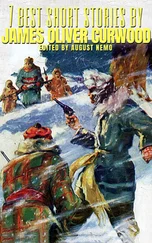The Sommers ranch would be Joshua, Megan, Malorie, and the boys’ home for the next one and a half years. With the ProvGov stretching its tentacles westward, they started to feel as if they were living the lives of NOC clandestine agents. Their false IDs were flimsy, since they had no other documentation. Once UNPROFOR troops passed through Driggs for the first time, Megan explained their situation to Ron Sommers, and he was sympathetic. It was decided that henceforth, only Ron or Tracy would make trips into Alta or Driggs.
Their two summers at the ranch were frenetically busy with moving cattle, hay cutting, wood cutting, constructing a henhouse, building a bullpen (with stout cedar posts buried at three-foot intervals), and gardening. Joshua’s party more than earned their keep all through the year. Their main security problems at the ranch were four-legged, rather than two-legged. Their war with the mountain lions, bears, coyotes, and wolves was endless. With the help of Joshua, Megan, and Malorie, only two calves were lost to predators, and none were lost to rustlers.
We have the illusion of freedom only because so few ever try to exercise it. Try it sometime. Try to save your home from the highway crowd, or to work a trade without the approval of the goons, or to open a little business without a permit, or to grow a crop without a quota, or educate your child the way you want to, or to not have a child. We all have the freedom of a balloon floating in a pin factory.
—Karl Hess
Alta, Wyoming—April, the Fourth Year
In early April, Tracy had heard that UNPROFOR Homeland Security investigators were asking questions around Driggs, making lists of “anyone suspicious.” According to Rumor Control, this included anyone with a military service record, anyone who refused to accept ProvGov currency for payments, anyone who had made disparaging comments about the ProvGov, and anyone who was not originally local to the area. Though Megan matched all these criteria, the last category concerned her most.
Megan, Joshua, and Malorie decided that it was time to leave the Sommers ranch, and with the snow off, the timing was good. They had been able to help Ron with some of the most intense work for two summers, so they felt that they had contributed enough labor to justify their upkeep.
On the day of their departure, they had their deer carts packed much more efficiently than when they had arrived. Over the past seventeen months, they had systematically acquired an assortment of gear that was better suited to cross-country travel than what they had arrived with. They also had three carts now—one for each adult. All three carts had been spray-painted in flat green and brown blotches. The heavy canvas tents that they’d inherited from the chaplain had been replaced with a pair of forest-green Fjällräven Singi lightweight nylon three-season backpacking tents. These Swedish-made tents were well used but of very good quality. Ostensibly two-man tents, they had just enough room for the five of them to sleep comfortably. The same retired backpacker in Driggs sold them several small waterproof dry bags to protect their gear from the elements.
Joshua’s party had also upgraded to better-quality sleeping bags for the boys, lighter-weight cooking gear, and four army surplus green foam sleeping pads that Joshua trimmed to match the interior profile of the tents. Their food was mostly beef jerky and freeze-dried Mountain House backpacking foods that they had bought at great expense with some of their pre-1965 silver coins. Anticipating a diet that was heavy on meat, they laid in a supply of Metamucil powder and an acidophilus-blend probiotic powder to maintain digestive regularity.
The boys had new broken-in boots instead of tennis shoes, and everyone had olive-green or woodland-camouflage ponchos.
After making their good-byes to the Sommerses, they headed out on the morning of April 10. The boys were crying. They were going to miss Chad. Their life at the Sommers ranch had hardened them in some ways but softened them in others. They were physically much stronger, given the exertions of wood felling, bucking, hauling, splitting, and stacking as well as hauling hay. (Nearly everyone in the region had switched back to small bales, since they didn’t require the use of tractors.) But they had become accustomed to regular meals and sleeping in warm beds. Roughing it out on the road would be much different and their mental stress level would be much higher.
Their progress through Idaho was slow. They made it to Driggs the first day, but then transitioned to night travel for the sake of stealth. (They were traveling armed, and not only were most of their guns in the ProvGov’s banned categories, none of them were registered.) Their intended route through the Banana Belt and up Highway 95 was 685 miles. After reaching the outskirts of Rexburg and averaging only 4.5 miles a night for the first week, Megan “did the math” and realized that their trip would probably take them five months if it was all done on foot.
Their modus operandi was to sleep during the day in brushy or wooded areas, cook their “breakfast” at dusk, and then be on the road by full dark. From Rexburg all the way to Payette, they were in open, arid country. Since the power grid had gone down, much of this erstwhile farming country had reverted to desert and had become largely depopulated. They looked forward to seeing windmills as their associated stock-watering tanks were often their only source of water after being filtered.
They became experts at dodging off the highway whenever they saw approaching headlights. This happened infrequently, since southern Idaho had just recently been occupied by UNPROFOR troops and fuel was still scarce. Whenever they saw headlights, they just assumed that it would be a UN vehicle. During the day, while the others slept, Joshua would often hunt rabbits and birds with a folding slingshot. He even became adept at stunning or killing trout with large pebbles from the slingshot, once he learned how to aim low, to compensate for the refraction of the water. Starting in Rexburg, they were also able to buy food to resupply their party, paying in silver dimes and quarters.
By May 7, they reached the strange town of Arco. The cliffs behind the town were painted with huge, gaudy, two-digit numbers representing high school class years. It was now nearly a ghost town. The most difficult stretch of their trip was the forty-three miles between Arco and Carey, since it took them through the dusty Craters of the Moon National Monument. They averaged seven miles per night, and found water only once, at Lava Lake. They rested, fished, and filtered water there for two days.
On May 14 they passed by Carey, and were able to refill their canteens again at Carey Lake and at the Little Wood River. From there on, water was less of a concern since they passed by water sources nearly every night. Often, however, the water had an alkaline taste even after being filtered. On June 10 they reached the outskirts of Mountain Home, Idaho. Because of an obvious UN troop concentration in both the city and the adjoining Air Force base, they took a circuitous route, via Mountain Home Reservoir. They slept in abandoned houses each day and averaged only two miles of travel each night. The daytime heat was becoming oppressive and they longed to get into the mountains.
They cut between Nampa and Meridian, Idaho, on small farm roads. Here, the population density was higher, but the people were friendly and generous, even though they had obviously been suffering since the Crunch. Most of the families here were Mormon. Rather than staying on Highway 95, they took Highway 55 north from the town of Eagle. It was here that they heard their first resistance firefights in Idaho. One of these was within a mile of them, and a few stray tracer rounds from UNPROFOR machine guns passed over their heads. Jean and Leo seemed more excited than frightened. The adults, in contrast, felt exposed and outgunned.
Читать дальше












